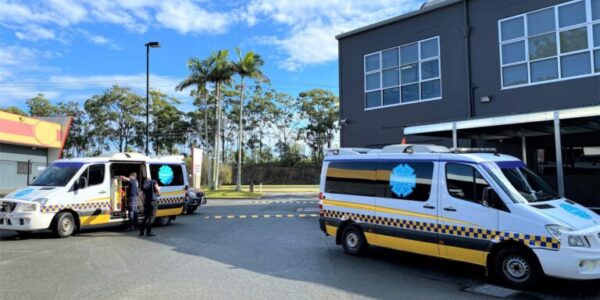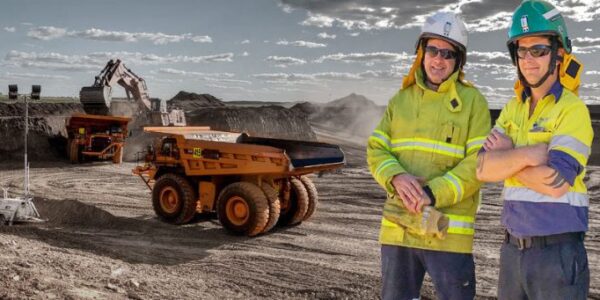What is a Private Sector Medic?
Private Sector Medics work within the pre-hospital emergency and non-emergency healthcare sector. Each provides medical assistance in a range of industries, including events and sports, the energy sector, search and rescue, the military and more
You may be surprised to learn that Private Sector Medics undertake many of the same tasks as a State Ambulance Paramedic, however, unlike becoming a Registered Paramedic, you do not need to hold a degree in paramedicine to become a Private Sector Medic. Completing a course such as the HLT41120 – Certificate IV in Health Care or HLT51020 – Diploma of Emergency Health Care can allow you to start working in the private sector straight away.
If you have a passion for helping others and want to move into emergency healthcare, choosing a career as a Private Sector Medic and tailoring it to your interests could be the perfect choice for you.
What kind of medic roles are available in the private sector?
There are different kinds of roles in the private sector that you can consider as a medic, each alligning to different interests.
For example, if you enjoy sports and recreational events, working as an Event Medic at major sporting events like rugby, tennis, NRL, etc. or music festivals would be perfect for you. Perhaps you’d prefer to work remotely on industrial sites with the chance to earn some big money? Then a career as an Industrial Medic is for you!
- Medic in mining, construction, manufacturing, hospitality, sports and tourism industries
Work in fast-paced and unpredictable environments where every day is different. Develop your career and choose the sector that suits your past experiences and existing skill set. - Onshore and offshore Oil and Gas Medic
As one of the most sought-after, yet higher risk, roles in emergency healthcare, this is a lucrative career path. These roles often require you to hold additional qualifications associated with working in these onshore/offshore remote environments. - Industrial Medic in the energy sector
Working in small teams and often challenging locations, you could be required to work in confined spaces or at heights in mines or on wind farms; or in remote locations on transmission grid networks. - Medic in the maritime industry
Travel the globe as a Medic on-board a tanker, container ship or freighter. - Remote Medic
This role requires survival and wilderness skills and could see you being required to provide assistance to critically injured people for days before help could arrive to such a remote destination. Extensive experience and extra qualifications are required for these roles. - Adventure and Expedition Medic
Travel the world and provide expert medical care in exotic destinations from the depths of the Borneo jungles to the harsh environment of Antarctica. Additional survival skills and extensive credentials and experience are a prerequisite for this type of role. - Medical Emergency Response Officer at airports, cruise terminals, train stations, bus terminals, ferry services and heavy haulage depots. Work for private contractors who provide first responder emergency care and assistance where vast amounts of people congregate and to use rapid transport systems.
- Emergency Services Officer at public events, outdoor and indoor concerts. Provide immediate medical response where mass crowds gather. These types of roles can provide assistance with everything from heat exhaustion and fatigue to full cardiac arrest and childbirth.
- Search and Rescue Medic with SES and other non-profit organisations. Working in unpredictable situations like floods, bushfires, avalanches, and collapsed buildings, you’d utilize your healthcare knowledge and quick thinking abilities to provide medical assistance to patients when they need it most.
- Event Medic at sporting events, such as Commonwealth Games, rugby, football, horse racing, NRL, AFL, etc. Reassure spectators and participants by being on-site to administer medical care and even save lives.
Typical job duties of a Private Sector Medic
Private Sector Medics are required to undertake many of the same duties as a State Ambulance Paramedic, including the tasks listed below.
Depending on the private sector industry you work in, you will also be required to complete duties that are more specific to that industry. For example, an Event Medic will spend more time dealing with large crowds and heat exhaustion while a medic in the mining sector would be required to regularly carry out drug testing as a part of their role.
- Attending accidents, emergencies and requests for medical assistance
- Assessing health of patients, determining need for assistance, and assessing specialised needs and factors affecting patients’ conditions
- Resuscitating and defibrillating patients and operating life-support equipment
- Transporting sick and disabled persons to and from medical facilities for specialised treatment and rehabilitation
- Attending public gatherings and sporting events where accidents and other health emergencies may occur
Employment outlook
One of the considerations when deciding to study to become a paramedic/medic is whether there will be enough jobs to go round. The Australian government is predicting strong growth in the demand for medics/paramedics in the health care and social assistance industry over the next five years to 2026*.
*Labour Market Insights (2024)
Private Sector Medic salary
The average annual salary for Medic jobs in Australia ranges from $125,000 to $145,00*.
*Seek (2024)
This could increase further depending on your level of experience, the industry you choose to work in and potential overtime too.
How to become a Private Sector Medic
Australian Paramedical College (APC) can equip you with the theoretical knowledge, practical hands-on experience and confidence to start your career as a Medic in the private sector as soon as you graduate.
The HLT41120 – Certificate IV in Health Care will qualify you for roles within the private sector, while the HLT50120 – Diploma of Emergency Health Care could give you an extra competitive edge when applying for roles, plus offer you the chance for an advanced-life-support scope of practice.
The Diploma is also a pathway to university, should you decide that you’d like to pursue a degree and work as a State Ambulance Paramedic further down the line.
What it’s really like to be a Private Sector Medic
Before studying at APC, Michelle Giles was working as a Medical Receptionist, but knew it wasn’t enough for her to feel fulfilled. She initially looked at university to study but became daunted so instead googled the HLT51020 – Diploma of Emergency Health Care, saw APC and took the jump.
Now a graduate, Michelle works in the private sector as an Emergency Services Officer (ESO). When talking about her position, she shares, “It’s hard sometimes but it’s so rewarding at the end of the day, at the end of the swing, when it’s time drive out, I just go “I accomplished so much”, you know? That’s kind of cool!“


